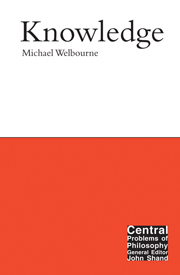5 - Learning from testimony
Summary
Preamble
Not all philosophers have taken Barnes's uncompromising stand. In recent years especially, they have increasingly come to recognize that testimony is, for each of us, an extremely important source of beliefs, and quite a number have recognized that it is often seen as a source of knowledge and have therefore tried to work out how this might be possible. These are the matters we are now going to investigate. Even philosophers who have given up on the project of achieving a satisfactory analysis of knowledge, and who have, on that account, focused on the question how to improve the quality of our beliefs, should be interested in the workings of testimony, since clearly so many of our beliefs are attributable to it; such philosophers may want to examine the conditions (supposing, pace Barnes, that there are some) under which beliefs obtained from testimony can satisfy proper standards of quality. For my part, I think that a correct understanding of how testimony works will give us the clue we need to discover the real nature of knowledge.
How, then, do we learn from testimony? How does testimony engender beliefs in its hearers? Under what circumstances might it engender knowledge? Above all, what does knowledge have to be like if it is to be obtained by these means? In this chapter, I shall discuss some of the larger issues that any philosopher asking these questions has to confront, chiefly through an examination of a long-standing controversy.
- Type
- Chapter
- Information
- Knowledge , pp. 77 - 92Publisher: Acumen PublishingPrint publication year: 2001



